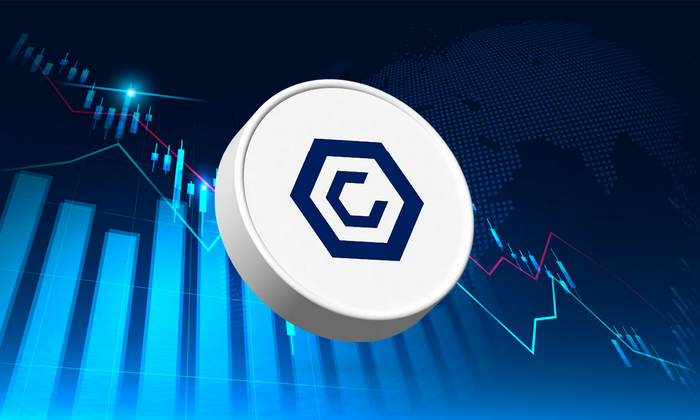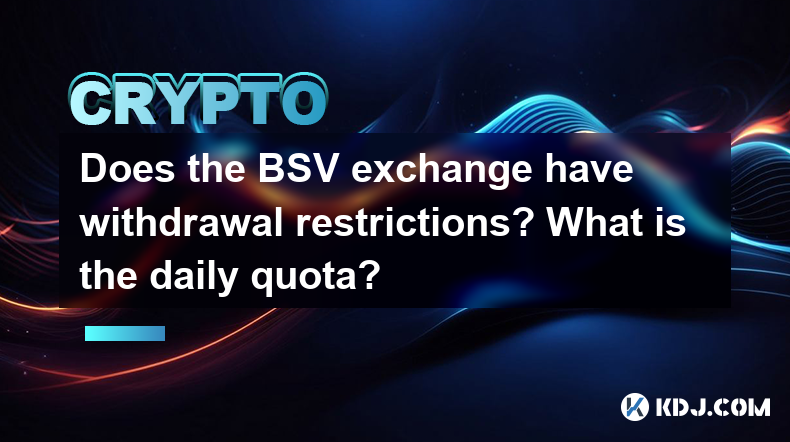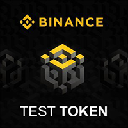-
 Bitcoin
Bitcoin $96,387.8679
2.14% -
 Ethereum
Ethereum $1,827.5248
1.41% -
 Tether USDt
Tether USDt $0.9999
0.01% -
 XRP
XRP $2.1378
1.04% -
 BNB
BNB $604.2110
0.89% -
 Solana
Solana $145.7139
0.83% -
 USDC
USDC $1.0000
0.00% -
 Dogecoin
Dogecoin $0.1717
1.36% -
 Cardano
Cardano $0.6756
2.42% -
 TRON
TRON $0.2442
-1.03% -
 Sui
Sui $3.3757
0.81% -
 Chainlink
Chainlink $13.8755
2.39% -
 Avalanche
Avalanche $19.7867
0.19% -
 UNUS SED LEO
UNUS SED LEO $8.7336
0.83% -
 Stellar
Stellar $0.2604
0.80% -
 Shiba Inu
Shiba Inu $0.0...01273
0.44% -
 Toncoin
Toncoin $2.9957
-0.36% -
 Hedera
Hedera $0.1759
1.18% -
 Bitcoin Cash
Bitcoin Cash $371.4131
3.31% -
 Litecoin
Litecoin $91.2861
10.54% -
 Hyperliquid
Hyperliquid $20.7053
2.21% -
 Polkadot
Polkadot $3.9445
1.29% -
 Dai
Dai $1.0001
0.00% -
 Monero
Monero $287.7518
2.87% -
 Bitget Token
Bitget Token $4.3110
0.38% -
 Ethena USDe
Ethena USDe $1.0004
0.02% -
 Pi
Pi $0.5802
-1.06% -
 Pepe
Pepe $0.0...07980
0.81% -
 Bittensor
Bittensor $370.2201
-0.85% -
 Uniswap
Uniswap $4.9002
-0.39%
How to buy Cronos (CRO) coins safely and reliably
To buy CRO coins securely, choose a reputable crypto exchange like Crypto.com, Binance, or Huobi, undergo KYC verification, fund your account, place a buy order, and store your coins in a hardware or reliable software wallet.
Dec 07, 2024 at 03:58 pm

How to Buy Cronos (CRO) Coins Safely and Reliably
Introduction
Cronos (CRO) is the native token of the Crypto.com exchange and ecosystem. It is a versatile cryptocurrency that serves various purposes within the Crypto.com platform, including staking, rewards, and payment transactions. Given its utility and increasing adoption, it's essential to understand how to buy CRO coins safely and reliably. This comprehensive guide will provide you with a step-by-step approach to acquiring CRO coins while ensuring your security and minimizing risks.
Step 1: Choose a Reputable Crypto Exchange
The first step to buying CRO coins is to choose a reputable and secure crypto exchange. Research and compare different exchanges based on factors such as fees, security measures, customer support, and liquidity. Look for exchanges that have a proven track record of reliability and a positive reputation among users.
Some of the most well-respected crypto exchanges that support CRO trading include:
- Crypto.com
- Binance
- Huobi
- Gate.io
- KuCoin
Step 2: Create an Account and Verify Your Identity
Once you have selected an exchange, create an account by providing your personal information and setting up a strong password. Many exchanges require users to undergo a KYC (Know Your Customer) process to verify their identity. This is to comply with anti-money laundering and terrorism financing regulations. The KYC process typically involves submitting government-issued identification documents and proof of residence.
Step 3: Fund Your Account
The next step is to deposit funds into your exchange account to purchase CRO coins. Most exchanges support a variety of deposit methods, including:
- Bank transfer
- Credit/debit card
- Crypto transfer
Choose a deposit method that is convenient and suits your financial situation. Be aware that some deposit methods may incur fees, so it's advisable to compare the options and choose the most cost-effective one.
Step 4: Place a Buy Order
Once your account is funded, you can place a buy order for CRO coins. Navigate to the CRO trading page on the exchange and enter the amount of CRO you wish to purchase. You will need to select the type of order you want to place. There are two main types of orders:
- Market order: Executes your order immediately at the current market price.
- Limit order: Allows you to set a specific price at which you want to buy CRO coins. Your order will only be executed if the market price reaches or surpasses your limit price.
Step 5: Store Your CRO Coins
After your buy order is executed, your CRO coins will be credited to your exchange account. However, for enhanced security, it's recommended to store your CRO coins in a hardware wallet or a reliable software wallet that supports CRO. Hardware wallets are offline devices that provide superior protection against hacking and theft. Software wallets offer convenience, but
Disclaimer:info@kdj.com
The information provided is not trading advice. kdj.com does not assume any responsibility for any investments made based on the information provided in this article. Cryptocurrencies are highly volatile and it is highly recommended that you invest with caution after thorough research!
If you believe that the content used on this website infringes your copyright, please contact us immediately (info@kdj.com) and we will delete it promptly.
- US Overtakes China as Top Bitcoin Mining Hub, Prompting Questions About How Beijing Will Respond
- 2025-05-07 14:05:13
- Indonesia suspends Worldcoin, the eyeball-scanning cryptocurrency project co-founded by OpenAI CEO Sam Altman
- 2025-05-07 14:05:13
- Bitcoin (BTC) Surges to New All-Time High of $97,388 Ahead of Fed FOMC Meeting
- 2025-05-07 14:00:12
- The crypto market intensifies due to growing opportunities as Dogecoin (DOGE) and Mutuum Finance (MUTM) attract investing interest.
- 2025-05-07 14:00:12
- The heads on coins are usually reserved for kings and queens, but how about Australian comedy royalty?
- 2025-05-07 13:55:13
- Elizabeth Warren and Five Other Democratic Senators Sent a Joint Letter to Janet Yellen, Harshly Criticizing the Trump Administration's Plan to Include Crypto Assets in the National Strategic Reserves
- 2025-05-07 13:55:13
Related knowledge

How to trade KAIA contracts? What is the difference between delivery and perpetual contracts?
May 07,2025 at 01:50pm
Trading KAIA contracts can be an exciting way to engage with the cryptocurrency market, offering opportunities for both short-term gains and long-term strategies. Before delving into the specifics of trading KAIA contracts, it's important to understand the two main types of contracts available: delivery and perpetual contracts. Each type has its unique ...

How to trade KAIA with leverage? What should I pay attention to in risk control?
May 07,2025 at 02:07pm
Introduction to Trading KAIA with LeverageTrading KAIA with leverage can significantly amplify your potential returns, but it also increases the risk of substantial losses. KAIA, a cryptocurrency, can be traded on various platforms that offer leverage. Leverage allows traders to borrow capital to increase their trading position beyond what would be poss...

BSV transaction fees suddenly increased? How to adjust the handling fee to save costs?
May 02,2025 at 06:42am
Understanding BSV Transaction FeesBSV (Bitcoin SV) aims to fulfill the original vision of Bitcoin as a peer-to-peer electronic cash system. One of the key elements in this system is the transaction fee, which compensates miners for including transactions in the blockchain. Recently, users have noticed a sudden increase in BSV transaction fees, which can...

Does BSV transaction require real-name authentication? Is anonymous trading feasible?
May 03,2025 at 03:14pm
The question of whether BSV (Bitcoin SV) transactions require real-name authentication and whether anonymous trading is feasible is a complex one, deeply intertwined with the broader dynamics of cryptocurrency regulations and blockchain technology. Let's delve into these aspects to provide a comprehensive understanding. Understanding BSV and Its Transac...

Does the BSV exchange have withdrawal restrictions? What is the daily quota?
May 07,2025 at 08:01am
The BSV (Bitcoin SV) exchange, like many other cryptocurrency platforms, implements various withdrawal restrictions and daily quotas to ensure the security and stability of the platform. Understanding these restrictions is crucial for users who frequently engage in transactions involving BSV. This article delves into the specifics of withdrawal restrict...

How to solve the high slippage of BSV transactions? How to choose between limit and market orders?
May 02,2025 at 09:01pm
High slippage can be a significant concern for traders dealing with Bitcoin SV (BSV) transactions. Slippage refers to the difference between the expected price of a trade and the price at which the trade is actually executed. This can occur in fast-moving markets or when there is low liquidity. To address this issue, understanding the mechanics of slipp...

How to trade KAIA contracts? What is the difference between delivery and perpetual contracts?
May 07,2025 at 01:50pm
Trading KAIA contracts can be an exciting way to engage with the cryptocurrency market, offering opportunities for both short-term gains and long-term strategies. Before delving into the specifics of trading KAIA contracts, it's important to understand the two main types of contracts available: delivery and perpetual contracts. Each type has its unique ...

How to trade KAIA with leverage? What should I pay attention to in risk control?
May 07,2025 at 02:07pm
Introduction to Trading KAIA with LeverageTrading KAIA with leverage can significantly amplify your potential returns, but it also increases the risk of substantial losses. KAIA, a cryptocurrency, can be traded on various platforms that offer leverage. Leverage allows traders to borrow capital to increase their trading position beyond what would be poss...

BSV transaction fees suddenly increased? How to adjust the handling fee to save costs?
May 02,2025 at 06:42am
Understanding BSV Transaction FeesBSV (Bitcoin SV) aims to fulfill the original vision of Bitcoin as a peer-to-peer electronic cash system. One of the key elements in this system is the transaction fee, which compensates miners for including transactions in the blockchain. Recently, users have noticed a sudden increase in BSV transaction fees, which can...

Does BSV transaction require real-name authentication? Is anonymous trading feasible?
May 03,2025 at 03:14pm
The question of whether BSV (Bitcoin SV) transactions require real-name authentication and whether anonymous trading is feasible is a complex one, deeply intertwined with the broader dynamics of cryptocurrency regulations and blockchain technology. Let's delve into these aspects to provide a comprehensive understanding. Understanding BSV and Its Transac...

Does the BSV exchange have withdrawal restrictions? What is the daily quota?
May 07,2025 at 08:01am
The BSV (Bitcoin SV) exchange, like many other cryptocurrency platforms, implements various withdrawal restrictions and daily quotas to ensure the security and stability of the platform. Understanding these restrictions is crucial for users who frequently engage in transactions involving BSV. This article delves into the specifics of withdrawal restrict...

How to solve the high slippage of BSV transactions? How to choose between limit and market orders?
May 02,2025 at 09:01pm
High slippage can be a significant concern for traders dealing with Bitcoin SV (BSV) transactions. Slippage refers to the difference between the expected price of a trade and the price at which the trade is actually executed. This can occur in fast-moving markets or when there is low liquidity. To address this issue, understanding the mechanics of slipp...
See all articles



















































































